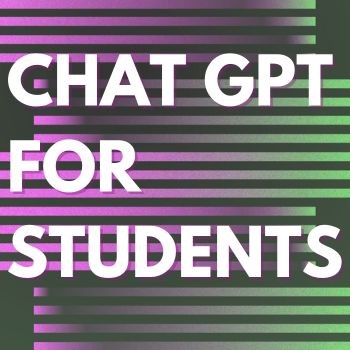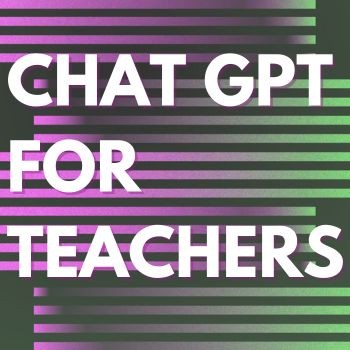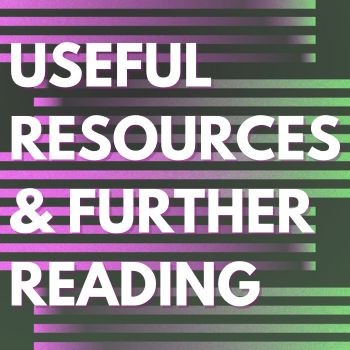Recently you might have heard lots of buzz about artificial intelligence, particularly ChatGPT.
It's already revolutionising many fields, including the way we search for information.
But what exactly is ChatGPT? What can it do? And what are the problems and limitations? Here's our beginner's guide to this new and rapidly evolving technology. Scroll down to find useful links and resources, as well as specific information and infographics for students and teachers.
What is ChatGPT?
ChatGPT is a language processing technology designed to engage in human-like conversations and answer questions. You can give ChatGPT almost any question or command and it will quickly produce a response using natural, human-sounding language. It does this by analysing your prompt and then generating a sequence of words that it predicts will answer it, based on the enormous dataset it was trained on (over 570GB, or approximately 300 billion words).
Why is it so revolutionary?
What sets ChatGPT apart from other systems is that it doesn't 'sound like a computer'. Instead of sounding cold or clinical, it uses natural language like a human being would. What's more, it remembers previous interactions and can incorporate them into subsequent responses.
For example, if you ask 'Who wrote Pride and Prejudice?' it may respond with, 'Pride and Prejudice was written by Jane Austen, an English novelist who lived from 1775 to 1817'. You can then follow up with, 'Was it her first novel?', and receive the response, 'No, Pride and Prejudice was not Jane Austen's first novel. Before Pride and Prejudice, Austen had already written and revised several other novels, including Sense and Sensibility.' It's like having a conversation!
ChatGPT's range of abilities is truly mindblowing. Not only can it answer questions and find information, it can write copy, improve existing copy, explain complex concepts in simple terms, produce tables and graphs, write code, write poetry and prose, and even write in the style of famous authors. For example, we said: 'Write a poem about libraries in the style of T.S. Eliot'.
"Let us go then, you and I, Where the stacks spread out against the sky, Like a cathedral's mighty spires, Housing books that fuel desires, Where lonely souls with searching eyes, Pore over pages, as time flies..."
Are there any problems with it?
Yes! This is a new technology that's developing rapidly, but current problems and limitations include:
- Risk of plagiarism. Students using ChatGPT should be mindful not to use it to 'do their work for them'. There are a number of online tools for teachers to help identify essays and other assignments written by AI.
- Bias. ChatGPT is only as good as the data it was trained on. If the data contains biases, then ChatGPT will exhibit those same biases.
- The 'plausibility problem'. ChatGPT doesn't actually 'know' things; it's a language model that uses statistical probabilities to predict what the next word in a sentence should be, based on the data it was trained on. Therefore some of the answers it gives may be false - but unlike some fake news and other online misinformation, they might be totally plausible. For example, the BBC presenter David Aaronovitch asked ChatGPT where he was born and it gave the answer Golders Green, which is perfectly plausible, but not true (he was born in Hampstead). It's hugely important to fact-check the information ChatGPT provides.
Developers are actively working to address these problems and improve ChatGPT's capabilities.
Prompts
One of the keys to using ChatGPT effectively is to master the art of writing prompts. The more specific and well-crafted the prompt, the better the output is likely to be. The website Great AI Prompts has lots of good advice and more than 100 suggestions of prompts that are proven to be effective.
For more ideas on prompts that will help ChatGPT advance your learning, try our own list of suggestions.
Introduction to Artificial Intelligence
There are a lot of good things about artificial intelligence (AI). It can give us information really quickly and save us time when doing something online. But, like with all new big changes in technology, some people might not feel ready to use it, or they might not know where to start.
Good Things Foundation, the digital inclusion charity, is on a mission to help everyone use the internet safely and understand technology better.
They’ve produced this free 2-minute animated video to help beginners learn about AI, see where it’s already present in online life, and feel excited to use it in everyday digital tasks.



